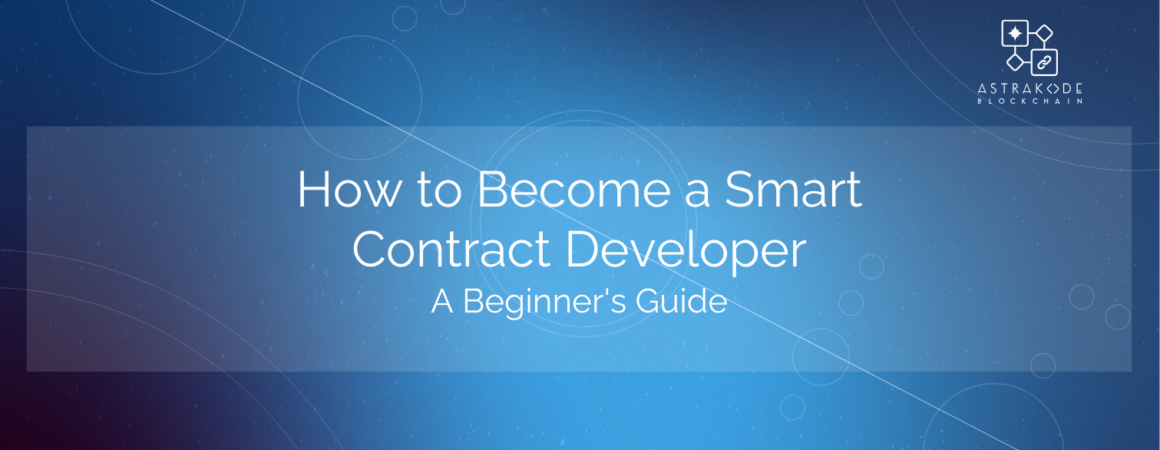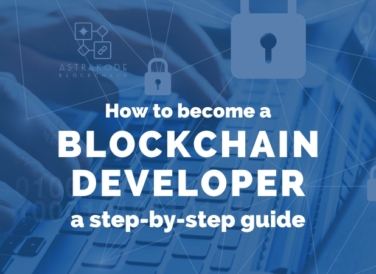
The Role of Smart Contracts in Blockchain
In the vibrant landscape of blockchain technology, smart contracts have emerged as a game-changing innovation,…

In the rapidly growing field of blockchain technology, smart contract developers are in high demand. These tech-savvy professionals possess the expertise to create self-executing contracts that run on the blockchain, revolutionizing the way transactions are conducted. If you aspire to become a smart contract developer, this essential guide is your key to mastering this cutting-edge technology. By delving into the intricacies of blockchain and learning to write secure and efficient smart contracts, you can position yourself as a valuable asset in the burgeoning blockchain industry. With the right skills and knowledge, you can become a sought-after smart contract developer, opening up a world of exciting career opportunities in this dynamic field.
A smart contract developer is an expert tasked with crafting, deploying, and overseeing the lifecycle of smart contracts on blockchain platforms. These contracts autonomously execute once they meet their encoded conditions, eliminating the need for third-party intermediaries.
The journey of a smart contract developer starts with drafting precise operational specifications for these contracts. Following this, they write and rigorously test the code, typically using specialized blockchain programming languages which we will dive more later in the article. After code development, they shift their focus to security, conducting thorough audits to strengthen the contracts against potential vulnerabilities.
Once confident in their smart contracts’ robustness, the developer deploys them onto the blockchain, making them accessible for user interactions. The developer’s role extends beyond deployment; they continuously monitor, maintain, and update these contracts to ensure optimal performance and address any feedback or regulatory changes.
Collaborating closely with various teams, the developer aligns the smart contracts with wider project goals, ensuring a seamless user experience. They also meticulously document their work, improving the code’s transparency and accessibility for future developers and stakeholders.
Here is one case study example in the diamond industry’s supply chain to understand the impact of smart contracts within the diamond industry, illustrating the innovative solutions they bring to complex challenges you can be a part of.
In the diamond industry, fraught with concerns over ethical sourcing and authenticity, De Beers’ Tracr platform offers a compelling solution. Tracr leverages smart contract technology within blockchain to provide a transparent, tamper-proof record of a diamond’s journey from mine to market. By capturing unique diamond data at the source and updating each transaction through the supply chain, Tracr ensures each gem’s story is told and verified, satisfying consumer demand for ethical assurance.
This implementation streamlines the supply chain process, significantly reduces manual verification and paperwork, and bolsters consumer confidence. The smart contracts autonomously execute and record transactions as diamonds move from miners to retailers, demonstrating the diamond’s conflict-free status. Tracr’s effectiveness in the diamond industry exemplifies the potential for smart contracts to revolutionize transparency and ethical practices in global supply chains.
In the ever-evolving landscape of blockchain technology, smart contract development has emerged as a pivotal and lucrative career path. Smart contracts, which are self-executing contractual agreements encoded on a blockchain, serve as the backbone of decentralized applications. They automate transactions and agreements, eliminating the need for intermediaries.
If you’re wondering how to become smart in the world of blockchain, or specifically, how do I become a smart contract developer, starting with a focused smart contract developer course that is offered by blockchain council as example, is your best bet. It’s not just about how to become smart but how to apply that intelligence in a field that is rapidly defining the new age of digital transactions.
Check out AstraKode’s platform to see how it can enhance your blockchain journey
For a more streamlined development experience, AstraKode’s smart contract platform offers intuitive tools and resources, making it easier for beginners and experts alike. Start your smart contract development with AstraKode today!
A key aspect of this learning curve involves familiarizing yourself with various programming languages specifically designed for smart contract creation. Let’s explore some of these languages in detail:
Understanding these programming languages and their ecosystems is the first step towards becoming a smart contract developer. Resources like CryptoZombies offer interactive coding lessons for Solidity, while Solana’s official documentation provides insights into Rust-based smart contract development.
In a nutshell, there are two primary approaches to learning: self-directed and formal education. The self-directed route leverages free resources like YouTube, free courses and online forums, which is cost-effective but requires self-motivation. On the other hand, formal education through structured courses or certification programs offers a guided learning experience, albeit with financial investment.
Additionally, in developing smart contracts, you can either manually handle all coding, testing, and deployment processes or utilize low-code solutions like AstraKode. While manual development demands in-depth knowledge of programming and blockchain technology, low-code platforms simplify these aspects, cutting down the process time by over 10X. However, even with low-code solutions, a foundational understanding of smart contracts and blockchain is crucial for success in this field.
To accelerate your learning curve, AstraKode offers a range of resources and a low-code solution that simplifies the smart contract development process. Sign up on AstraKode to explore these tools and kickstart your development journey.
An emerging trend in smart contract development is the use of pre-designed, ready-to-use templates. Our industry-tailored templates, such as those for Agri-food and Fee Management, streamline the development process, allowing developers to concentrate on customization and specific functionalities.
As we’ve navigated through the essentials of becoming a smart contract developer, it’s clear that this career path is not just about technical skills. It’s about being at the forefront of a technological revolution, shaping the future of transactions and agreements across numerous industries. The rise of blockchain technology and its increasing adoption across diverse sectors offers an exciting and dynamic landscape for aspiring developers.
Don’t let the complexity of blockchain and smart contract development hold you back. AstraKode is here to support your learning curve, streamline your development process, and help you unlock your full potential as a smart contract developer. Embrace the future, innovate with confidence, and join the blockchain revolution today.
Start your journey with AstraKode – Sign up now and explore the endless possibilities in the world of blockchain and smart contract development.

In the vibrant landscape of blockchain technology, smart contracts have emerged as a game-changing innovation,…

Welcome to the exciting world of blockchain! If you’ve ever wondered what this revolutionary technology…

Blockchain technology has taken the world by storm and has become a vital tool in…